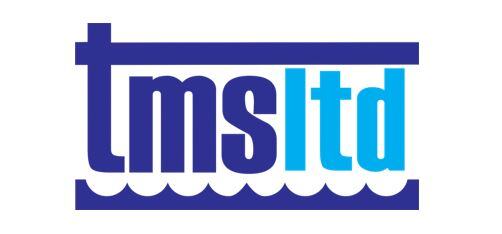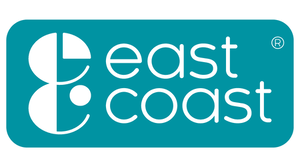
Selling Your Business
How we deliver maximum value for you
Selling your business is a big decision, often the culmination of a lifetime’s work and carrying financial, professional and personal significance. Before you consider selling you will want and need to know the value of your business and how to prepare your business for a sale. As one of the longest serving corporate finance firms in London, when we work with you to sell your business, we do so having listened carefully to your objectives, always acting with your best interests in mind. Our aim is that every transaction on which we advise results in the optimal mix of the Corbett Keeling ‘3 Cs’: cash, certainty and chemistry.
-
CashOur advice aims to maximise the amount you receive from selling your company and typically results in a 40% uplift in sale value
-
CertaintyWe work to create certainty in the success of a sale and have a 90% deal completion rate
-
ChemistryWe proactively seek a new owner who will help your company and your team to flourish
Before the process of preparing for a sale begins, you need to decide whether this is the right time for you to sell your business. We will work with you to analyse the factors that affect the current value of your company and identify implementable actions to improve profit growth and reduce risk, increasing value in the eyes of a buyer and preparing your company for the best time to sell, whether it’s now, in a few months’ time or even a year. To find out more about how to prepare your business for a sale, click here.
Our five stage sale process delivers maximum value for our clients:
-

01
Pre-sale Preparation
-

02
Process Preparation
-

03
Engagement & Negotiations
-

04
Due Diligence & Legal Documentation
-

05
Completion
Sale Options
Our team at Corbett Keeling will work with you to establish which type of transaction best meets your objectives. These options typically include:
A trade buyer is a company operating in your sector or adjacently in terms of geography, product or market, in the UK or abroad. The trade buyer might be a direct competitor or a company at a different point on the value chain, such as a customer or supplier. Trade buyers typically aim to benefit from strategic and synergistic alignment and so will often pay the highest price.
Benefits to business owners include:
- Trade buyers often result in the highest price, often because of synergies that are achieved between buyer and seller
- Trade buyers typically buy 100% of the business giving you the chance to exit your business completely
- You may be offered a reduced but significant role in the company
- The market position of your business may be enhanced as part of a larger group with complimentary products and services
- Familiarity with the sector can enhance the chemistry between the buyer and your business
A financial buyer might be a private equity investor, an external debt provider such as bank or debt fund, a family office or even a high net worth individual. They will be looking to take a minority or majority stake in the business as part of a leveraged buy-out (LBO) transaction. The financial buyer will join the board of directors and typically look to sell their stake or exit the business within three to five years.
Benefits to business owners include:
- The ability to realise capital from your business whilst staying involved
- The opportunity to earn greater longer-term rewards as you retain a shareholding in a growing business
- A higher valuation price which can be achieved by gearing
- Minimal day to day interference; financial buyers are less likely to get involved with daily operations or disrupt staff
- Chemistry with the buyer is often easier as there are less people directly involved in the business
- There may be additional opportunities for growth backed by the buyer in the future
Selling to management involves the transfer of business ownership to a capable and ambitious senior management team via a management buy-out (MBO). The seller receives an initial payment with the remaining portion paid over the next three to five years. This type of sale can be funded by a private equity investor or an external debt provider such as a bank or debt fund; excess cash in the business is also often used to part fund a MBO.
Benefits to business owners include:
- MBOs are often the easiest and most straightforward type of sale to arrange
- Selling to management is the surest way to maintain confidentiality about the sale
- MBOs generally have the highest sale completion rate
- A higher valuation price can be achieved by gearing
- You can be confident that the management team has a deep understanding of the business
- MBOs typically result in a smoother transition for members of staff
An Employee Ownership Trust (EOT) is an indirect type of employee ownership where shares are held by an independent trust on behalf of all employees. This method of sale is especially attractive to company owners who can’t or don’t want to arrange a trade sale, perhaps because the business relies on a key contract, member of personnel or unprotected intellectual property, all of which may reduce their value to trade and financial buyers.
Benefits to business owners include:
- Achieve a fair market value for your shares
- Preserve the legacy and ethos of your business
- Benefit from favourable tax exemptions
- Incentivise your management and staff with the structure
- Exit in a straightforward and quick transaction
- Remain involved with the business if you would like to
Larger companies may be suited to an Initial Public Offering (“IPO”), also known as “floating” or “going public”, which means giving over a percentage of the company for purchase by the public in the form of shares. The company is listed on an exchange such as the Alternative Investment Market (AIM) or the London Stock Exchange, at which point shares can be bought and sold on public markets.
Benefits to business owners include:
- The opportunity for you and fellow shareholders to realise cash
- An injection of cash into the company to fund growth without resorting to debt and interest payments
- Ability to raise debt on more favourable terms from banks
- The opportunity to retain equity ownership and operational control while raising the company value
- Raise company profile and press coverage
- Improved ability to attract the best talent in the market with stock options and shares for which there is a market
Completed Transactions
-
TMS Group
Corbett Keeling is delighted to have advised the shareholders of TMS Group on the successful sale of their businesses to Sullivan Street Partners, a UK-based private equity investor that specialises in mid-market companies.
TMS Group comprises Teignmouth Maritime Services (TMS) and Hesselberg-Hydro (HH) – two leading marine infrastructure service providers – and Marine Plant Hire (MPH), a marine plant charter and hire company that supports marine construction activities. Together, these businesses work across waterways and tidal coastal environments, specialising in repairs, construction and redevelopment projects.
Founded in 1991, TMS offers services including piling, dredging, waterway management and flood risk management. Founder Peter Stenner continues as CEO and retains a stake in the business. HH, established in 1986 and acquired through an MBO by Roger Smith in 2004, specialises in advanced flood risk management engineering. Roger also remains in the business as Managing Director.
The deal was designed to reward the founders, retain leadership and support future growth. Alongside partial cash-out and reinvestment, a long-term incentive scheme has been introduced for key employees, recognising their contribution and giving them a stake in the group’s future.
Corbett Keeling supported TMS Group at every stage of the investment process, with the transaction being led by Jim Keeling and Rob Callaghan. Their hands-on approach, careful positioning and tightly managed process helped unlock significant value and secure the right partner with the vision and flexibility to support long-term growth.
What the deal participants said:
Peter Stenner, CEO of TMS Group, said:
“Over the past 30 years, we’ve built the TMS Group with the support of dedicated friends and colleagues who have helped us get to where we are today. As for the sale process, I can definitely say we chose the right people to act for us. We were in safe hands with Rob and the Corbett Keeling team – sharp, dependable and genuinely supportive from start to finish.”Richard Sanders, Founder and Managing Partner at Sullivan Street Partners, commented:
“TMS, HH and MPH are brilliant businesses, with a high-calibre workforce motivated to solve problems and tackle the challenges facing our coastline and inland waterways. Together with Peter and Roger, we’ll create a national marine infrastructure group with its own equipment and self-taught engineering staff – to get the UK to where we need to be.”Jim Keeling, CEO of Corbett Keeling, said:
“It was a pleasure working with the absolutely first-class team at TMS Group to secure a successful majority exit for the founding shareholders. We’ve no doubt that the continuing management team, with the backing of Sullivan Street, will go on to achieve great things.”TMS Group
-
Service
- Selling Your Business
- Year2025
-
Service
-
Bébécar UK
Corbett Keeling is delighted to have advised the shareholders of Bébécar UK, a family-run company based in Norfolk, UK, on its sale to Baby Central, a trusted distributor of baby products in the UK.
Portuguese company Bébécar has been a leading brand in the UK baby products market for nearly four decades, known for its high-quality craftsmanship and innovative designs.
This transition marks a significant milestone for both businesses. Eric White, owner of Bébécar UK, has enjoyed a long-standing partnership with Bébécar of Portugal and is confident that Baby Central will ensure the continued growth and success of the Bébécar brand in the UK.
Baby Central’s diverse portfolio includes globally recognised brands such as Dr Brown’s baby feeding products, WonderFold stroller wagons and Carefix maternity wear. The company also owns the dreamgenii brand, celebrated for its sleep positioners and baby-feeding cushions. This acquisition reinforces Baby Central’s commitment to offering a comprehensive range of premium baby and maternity products.
To ensure continuity for Bébécar’s UK retailers and customers, Baby Central is welcoming key team members from Bébécar UK, including experienced sales agents and support staff.
Harry Knight, advising on behalf of Corbett Keeling, said: "This was a great outcome for all parties. It has been a privilege to support Eric and Bébécar UK with corporate finance advice over the past five years, and we wish the company and its new owners every success."
Bébécar UK
-
Service
- Selling Your Business
- Year2025
-
Service
-
East Coast Nursery
Corbett Keeling is delighted to have advised the shareholders of East Coast Nursery, a family-run company based in Norfolk, UK, on its sale to Clair de Lune, a trusted name in baby bedding and nursery essentials. The deal includes the well-respected East Coast and Silvercloud brands.
For over 65 years, East Coast Nursery has been supplying high-quality children's furniture and nursery products, with a strong commitment to UK design and manufacturing. Bringing together these two heritage brands presents an exciting opportunity to strengthen Clair de Lune’s offering for families across the UK.
Eric White, joint founder and long-time owner of East Coast Nursery, who has received both the Nursery and Pre-School Lifetime Achievement Awards, said: "Having worked with Clair de Lune’s parent company in the past, I know they’re the right fit to carry the East Coast brand forward and build on its strong reputation."
As part of this transition, Clair de Lune welcomes Anna Wilkinson, who brings extensive retail experience from her time as a buyer at Mothercare and Toys ‘R’ Us. She has successfully led Silvercloud with East Coast for 15 years.
Hadley Pollard, Managing Director of Clair de Lune, reflected on the company’s growth: "Over the past five years, we’ve taken Clair de Lune to new heights, and this acquisition is the next step in our journey. We’re excited to honour East Coast’s legacy while expanding our range of high-quality nursery products across the UK."
Harry Knight, who advised on behalf of Corbett Keeling, added: "This was a great outcome for all parties. It has been a privilege to support Eric and East Coast Nursery with corporate finance advice over the past five years, and we wish the company and its new owners every success."
East Coast Nursery
-
Service
- Selling Your Business
- Year2025
-
Service
-
QX Global Group
Corbett Keeling is delighted to have advised QX Global Group (“QX”), one of the world’s fastest-growing business process management (“BPM”) and consulting companies, in securing a £100m+ growth investment from Long Ridge Equity Partners, a New York-based private equity firm.
QX was founded in the UK in 2003 by Chris Robinson and a small team of five Indian accountants based in Ahmedabad. Over the last 20 years, QX has placed itself at the heart of this dynamic sector, building a uniquely integrated platform that leverages its BPM expertise along with consulting services and automation technologies (including artificial intelligence). This enables transformation for its clients through end-to-end enterprise solutions across the accounting, recruitment, real estate, manufacturing, public sector, higher education, healthcare, consumer packaged goods, retail, utilities, and energy sectors. QX has grown to a team of over 3,000 staff across operations in 18 countries, including five delivery centres in India and one in Mexico.
Founded in 2007, Long Ridge is a US-based growth equity firm focused on investing in the tech-enabled services, enterprise software, and financial technology industries. Over their 17-year history, they have had the opportunity to work with and help build some of the world’s leading companies in these sectors.
QX spent over a year considering potential investment partners and met numerous firms during this process. Ultimately, the QX leadership team selected Long Ridge due to their experience in the tech-enabled services industry and excellent track record of partnering with fast-growing, high-potential businesses like QX.
Chris Robinson, Founder of QX Global Group, said, "The Long Ridge team brings a wealth of senior experience in the BPM and consulting sectors. I am so proud of everything that has been achieved at QX so far, and I couldn't have asked for a more impressive and experienced investment partner to support the next stage of the QX growth story."
The partnership brings together one of the fastest-growing global BPM specialists with a recognised US-based growth equity firm with a stellar history of helping build some of the world's leading companies in the technology and tech-enabled services sectors.
Angad Singh, Partner, and Jim Brown, Founder and Managing Partner at Long Ridge, jointly said, "We are very excited to welcome QX to the Long Ridge portfolio and have very high hopes of a truly rewarding growth partnership with Pom and his team over the coming years."
While the majority of the QX Board and management team will remain in their roles and reinvest in the company, the following key changes will result from the deal:
Following the investment, Founder and Executive Chairman Chris Robinson will step down from the QX Board after leading the business for the last 20 years.
Abid Neemuchwala will join the company as Chairman. Abid is a recognised leader in the BPM industry and will work closely with the QX team as the company executes its growth strategy. He is an advisor on Long Ridge's Executive Council and previously held the role of CEO at Wipro.
Frank Robinson, QX Global Group's CEO since 2018, will step into the role of Board Executive Director and retain a significant investment in QX Global Group.
Pom Chakravarti will assume the role of Group CEO. Pom has been with QX for nearly 20 years and has extensive experience as a leader across all the business's main divisions, and previously served as the company's Chief Strategy Officer.
Corbett Keeling, QX’s long-term corporate finance adviser, supported the company at every stage of the investment process, from initial preparatory work to hand-picking an investment partner with excellent chemistry. Through this exciting partnership, QX is well-placed to benefit from Long Ridge’s considerable sector expertise, excellent track record in working with fast-growing businesses such as QX, and ability to scale operations in North America.
Jim Keeling, CEO and Chairman of Corbett Keeling, said, “We have had the privilege of partnering with Frank and Chris for the past five years, supporting them through their acquisition of Chazey Partners in 2021 and now guiding them to a successful conclusion with Long Ridge. Witnessing the QX deal team’s unwavering professionalism and dedication has been truly inspiring. They balanced the rigours of the investment process with their daily operations seamlessly. It’s no wonder that QX attracted significant interest from investors from the very beginning.”
Harry Knight, Corporate Finance Director at Corbett Keeling, added, “Completing this deal marks a significant milestone for QX, and we take immense pride in having played a key role in bringing their partnership with Long Ridge to fruition over the past year. The growth potential, as validated by EY, is tremendous. We eagerly anticipate seeing this new team drive the company towards its ambitious goals.”
QX Global Group
-
Service
- Selling Your Business
- Raising Capital
- Year2024
-
Service
See what our clients say about us
It’s not a process that we could have done on our own and certainly the final outcome we would never have achieved if we hadn’t had [Corbett Keeling] on board.
Karen RaquetFounder
I am delighted that our paths crossed which has resulted in concrete futures for all my family and the remaining companies in the Group. Your dedication in seeking out our requirements was resolute. I would have no hesitation in recommending the sincere professionalism of Corbett Keeling. Many thanks from the Nicol/Antczak Families.
Maurice NicolFounder
It was a pleasure dealing with Jim Keeling and his team throughout the process. We wanted to find the right partners and to do the right deal for us - Corbett Keeling delivered just that.
Chris LeachChairman and Founder







